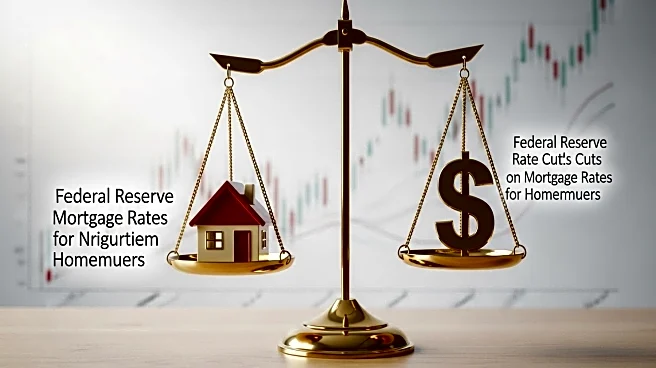What's Happening?
The Federal Reserve is expected to lower its benchmark interest rate, which has led to a decrease in mortgage rates. The average rate for a 30-year fixed-rate mortgage has fallen to 6.35%, its lowest in nearly a year, as financial markets anticipate the Fed's decision. This decline in rates is also seen in 15-year fixed-rate mortgages, popular among homeowners refinancing their loans. Experts note that while the Fed's rate cuts directly affect short-term interest rates, mortgage rates are influenced by longer-term economic conditions, particularly Treasury rates. Investors are focused on these conditions, which are reflected in the bond market.
Why It's Important?
The anticipated Fed rate cut is significant as it impacts borrowing costs for homeowners, potentially making refinancing more attractive. Lower mortgage rates can stimulate the housing market by making home loans more affordable, thus increasing demand. This can benefit homeowners looking to refinance or purchase new homes. However, the broader impact on the economy depends on various factors, including inflation, job growth, and consumer spending. The Fed's monetary policy signals can influence market expectations and investor behavior, affecting long-term economic stability.
What's Next?
The Federal Reserve's decision on interest rates is expected soon, and its outcome could further influence mortgage rates. Homeowners and investors will be watching for any statements from Fed Chair Jerome Powell regarding future monetary policy directions. These statements could impact the bond market and mortgage rates more than the rate cut itself. Lenders may continue adjusting their rates in anticipation of the Fed's actions, affecting the housing market dynamics.










